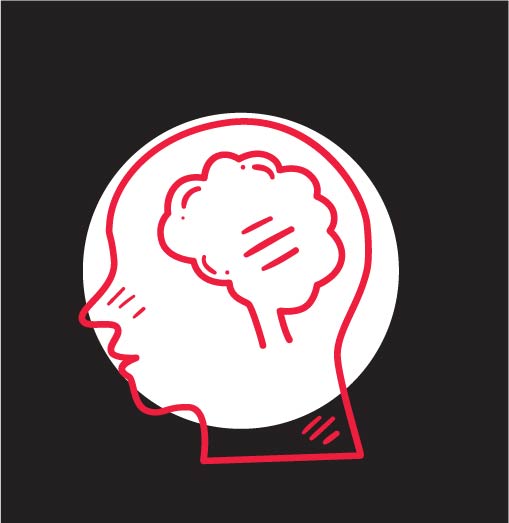Music mediation and mental health
Home » Activities » Research » Music mediation and mental health

What score do musicians play?
Partnership research on the program of musical animation at Centre Albert-Prévost
Irina Kirchberg
2019-2020
Every year since September 2018, the music department at the Cégep de Saint-Laurent (a Montréal pre-university educational institution) has offered a cohort of fifteen music students the opportunity to perform in the mental health department of Hôpital du Sacré-Cœur, thanks to grants provided by a sponsor. After passing a recruitment competition, the students, age nineteen on average, take turns offering two one-hour performances per week for a year at Pavillon Albert-Prévost.
A number of works on the profession of cultural mediator (Goulet 2012; Prévost-Thomas and Vessely 2016; Provost, 2019) present studies on people “without a past” (Lahire 2002) – that is, without any previous socializing experience that would provide a reason for the conditions under which they engaged in this professional path. This research brings out all the “self-work” necessary for young performing musicians to take on the role of mediator.
The research report that will be published in 2022, in the form of an article, is based on an analysis of data drawn from more than forty application letters, fifteen life-story interviews, and a year of observation of the students’ performances at the hospital. The results highlight the implicit role played by family and school (elementary and high school) socialization that fosters the students’ investment in this animation activity in the healthcare environment. The research also surfaces points of friction between the “categories” (Chagnard 2017) promoted by the pre-university educational institution regarding professional music practice (distance between performer and audiences, excellence, essentialization of the power of music, performance associated with anxiety) and the action plans mobilized in the field by the students during these extracurricular interventions (talking, management of closeness to the audience, and so on). On the whole, this work shows how, following this unique socializing experience, the students were torn between a conception of professional music training in terms of the training of bodies and a reflection on the meaning of working in music. In the background, the research brings out the way in which a college integrates the training of students and the new realities of practising the trade of musician (Kirchberg 2020).
ARTICLE
2022 « Découvrir la médiation de la musique durant sa formation collégiale : frottement entre le dressage des corps et sens du travail chez de jeunes instrumentistes » dans Remi Deslyper, Irina Kirchberg, Alexandre Robert, « Les socialisations musicales », Transposition – Musique et sciences sociales, Vol. 11.
COMMUNICATIONS
2022 « Comment intégrer l’animation musicale en milieu de santé à la formation des cégépien.nes des départements de soins infirmiers et de musique : le cas des bourses Joanne Martens », Congrès international de l’AQPC, 8-10 juin 2022.
2022 « Découvrir la médiation de la musique durant sa formation collégiale : frottement entre dressage des corps et sens du travail chez de jeunes instrumentistes », Midi recherche du Laboratoire de recherche sur les publics de la culture, 23 mars 2022.
2021 « Quand la formation des musicien.ne.s interprètes invite à repenser la place de la culture dans la société. Le cas du Cégep de St-Laurent et de la Bourse de l’harmonie Joanne Martens », Forum Les arts et la ville Culture, santé et justice sociale, 24 mai 2021.
2020 « Médiation de la musique et santé mentale, quelle partition pour les musicien.nes ? » Colloque international « Musique et psychiatrie ; orchestrer la rencontre » ; HEMU, Lausanne, 13-14 février.
Research team
Irina Kirchberg is a guest professor in the Faculty of Music at the Université de Montréal, where she is co-manager of the DESS in music mediation. She is also a member of the international research group Partenariat Publics de la Musique (P2M) and of the Observatoire des Médiations Culturelles (OMEC). She is the author of Panorama des pratiques de médiation de la musique au Québec (2019) and is currently conducting research on digital devices for musical mediation. Kirchberg was co-editor of the books Faire l’art. Analyser les processus de création musicale (2015) et Bourdieu et la musique. Bilan et perspectives (2019).
Auxiliaires de recherche : Émilie Adam et Audrey Gauthier.
REFERENCES
Dubois, V. (2013). La culture comme vocation. Paris : Raisons d’agir.
Goulet, D. (2012). Introduire l’art et la culture en milieu de soins et de services sociaux. Le pour qui et le comment. Montréal : Ministère de la Culture et des Communications , Centre Hospitalier de l’Université de Montréal (CHUM), Agenda 21 pour la culture du Québec.
Melhuish, R., Beuzeboc, C. et Guzmán, A. (2015). Developing relationships between care staff and people with dementia through Music Therapy and Dance Movement Therapy: A preliminary phenomenological study: Dementia. doi:10.1177/1471301215588030
Sapiro, G. (2007). La vocation artistique entre don et don de soi. Actes de la recherche en sciences sociales, n° 168(3), 4-11.
Tapson, C., Noble, D., Daykin, N. et Walters, D. (2018). Live music in care. the impact of music interventions for people living and working in care home settings (p. 61). Winchester : University of Winchester, Live music now.


